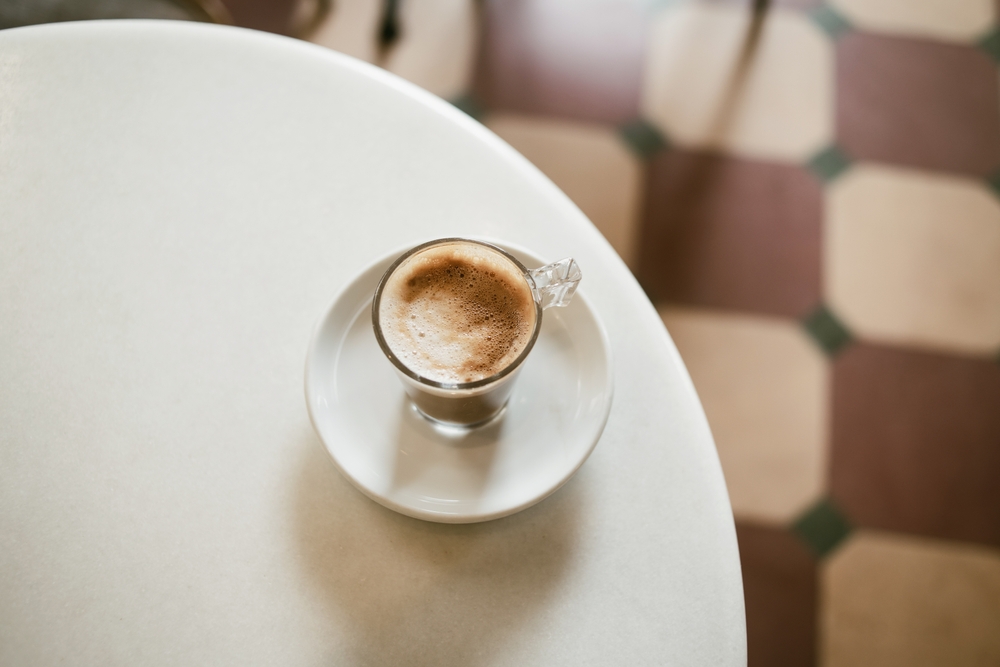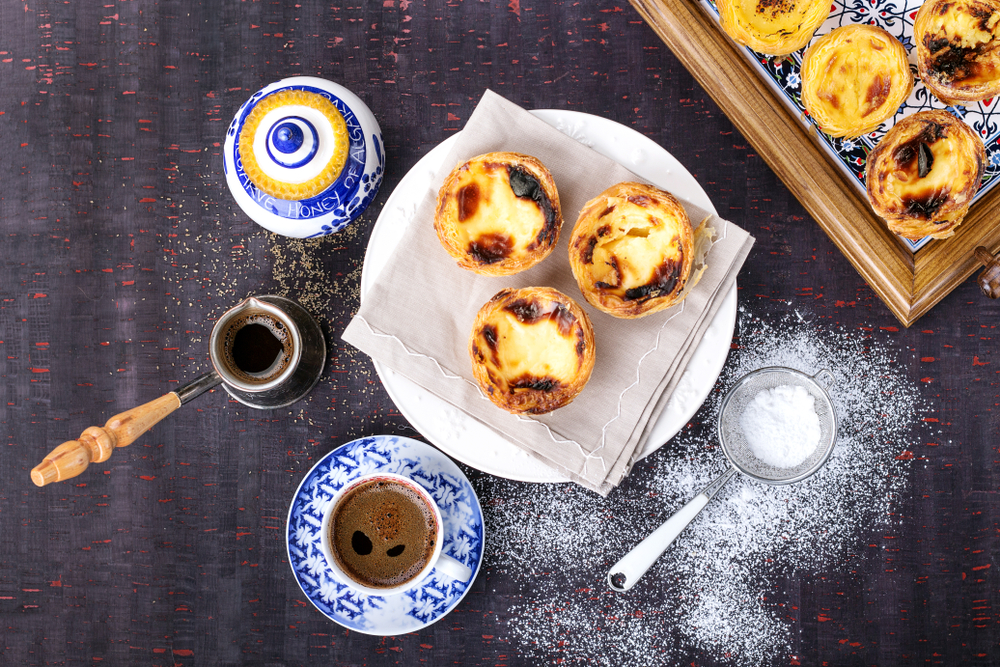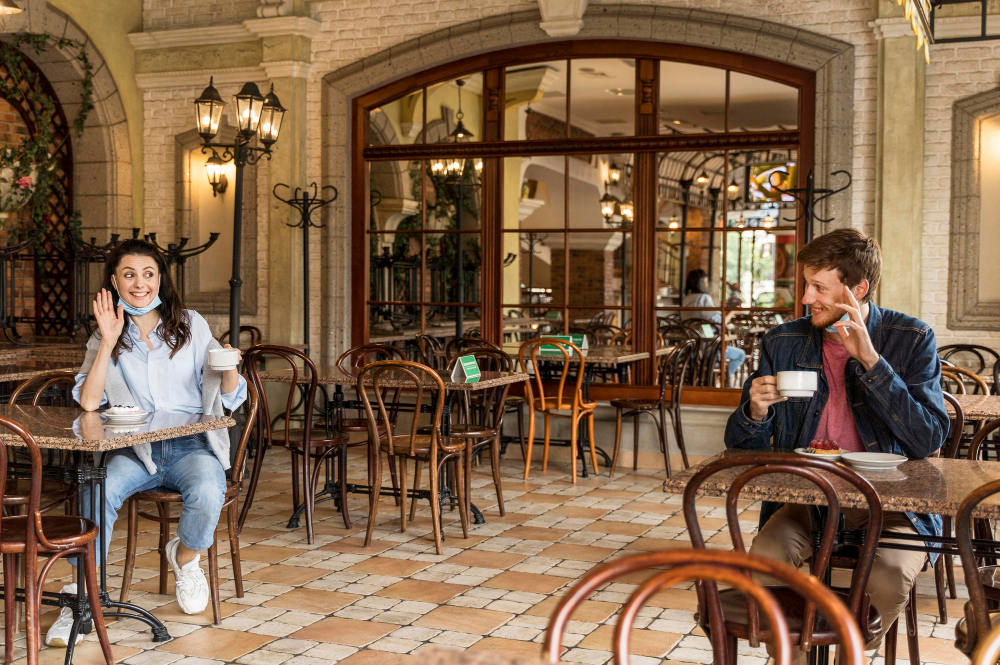In Lisbon, coffee is more than just a drink. It’s a ritual, a social lubricant, and a cultural icon all rolled into one. From bustling cafés to quiet neighborhood corners, coffee plays a starring role in the daily drama of Lisbon life. But how did this aromatic brew become so deeply ingrained in the city’s DNA? Let’s take a journey through time and taste to uncover the fascinating story of coffee in Lisbon.
History
Now, you might think that coffee has always been a part of Lisbon’s culture, but let me tell you, it hasn’t been brewing here forever. Coffee first made its grand entrance into Portugal in the 16th century, riding on the coattails of the country’s maritime explorations. Talk about a souvenir, right?

At first, coffee was a luxury item, enjoyed only by the elite. But as time went on, it started to trickle down to the masses. By the 18th century, Lisbon was dotted with cafés, or “botequins” as they were called back then. These weren’t just places to grab a quick caffeine fix—they were hotbeds of intellectual discourse, political debate, and artistic expression.
Fast forward to today, and coffee has become as much a part of Lisbon as the iconic yellow trams or the melancholic fado music. It imbeds itself into the very fabric of the city, influencing everything from daily routines to social interactions.
Read: A Visitor;s Guide to Getting Around Lisbon’s Trams
The Traditional Lisbon Café
Now, let’s talk about where the magic happens—the traditional Lisbon café. These aren’t your run-of-the-mill coffee shops. Picture high ceilings, ornate mirrors, and marble-topped tables. Many of these cafés are architectural marvels, with Art Nouveau or Art Deco designs that’ll make your jaw drop faster than you can say “espresso.”
But it’s not just about looks. These cafés are the beating heart of Lisbon’s social life. They’re where friends meet to catch up, where business deals are struck, and where solitary philosophers ponder life’s big questions over a tiny cup of bica (more on that in a bit).
In a Lisbon café, time seems to slow down. There’s no rush, no pressure to gulp down your coffee and run. Instead, you’re encouraged to linger, to savor not just your drink, but the atmosphere, the conversations, the very essence of Lisbon life.
Rituals and Customs
How do Lisboetas actually drink their coffee? First things first, forget about your venti caramel macchiatos. In Lisbon, it’s all about simplicity and quality.
The king of Lisbon coffee is the bica. It’s basically an espresso, but don’t you dare call it that in front of a local. It’s short, strong, and often served with a side of sparkling water to cleanse the palate. If you’re feeling a bit more indulgent, you might go for a galão—that’s espresso with foamed milk, served in a tall glass.
Now, when it comes to coffee consumption, timing is everything. A bica after lunch is practically mandatory. It’s a digestive, a social ritual, and a much-needed pick-me-up all in one. But don’t even think about ordering a milky coffee after a meal—that’s strictly a morning drink in Lisbon.
And here’s a pro tip: in Lisbon, it’s totally acceptable to have multiple coffee breaks throughout the day. In fact, it’s encouraged. It’s all part of the city’s laid-back, enjoy-life attitude.
Coffee and Pastries

If there’s one thing that goes better with coffee than good conversation, it’s a delicious pastry. And in Lisbon, you’re in for a treat—literally.
Let’s start with the star of the show: pastéis de nata. These heavenly custard tarts are as much a symbol of Lisbon as the coffee itself. Crispy, flaky pastry filled with creamy, egg custard, often with a hint of cinnamon—they’re practically begging to be dunked in your bica.
But don’t stop there. Lisbon’s cafés are treasure troves of sweet delights. There’s the bola de Berlim, a fluffy doughnut filled with cream. Or try the queijada, a cheesecake-like tartlet that pairs perfectly with a mid-afternoon galão.
The combination of coffee and pastries isn’t just delicious—it’s a cultural institution. It’s a moment of indulgence, a little pocket of joy in the day. And in Lisbon, these moments are savored and celebrated.
Read: The Biggest Health Risks to Avoid When Traveling to Tropical Destinations
Cafés as Cultural Hubs
Now, let’s talk about how these cafés have been stirring up more than just coffee. Historically, Lisbon’s cafés have been the unofficial headquarters of the city’s intellectual and artistic life. Think of them as the internet of their time, but with better coffee and actual face-to-face conversations.
Take Café A Brasileira, for instance. This iconic spot in the Chiado district has been a magnet for writers, artists, and philosophers since 1905. It’s where you might have found Fernando Pessoa, one of Portugal’s most famous poets, scribbling away at his table. In fact, there’s a bronze statue of him outside the café today – talk about a regular customer!
But it’s not just about the past. Modern cafés in Lisbon are still hubs of creativity and connection. These days, you’re just as likely to see freelancers tapping away on laptops as you are to see friends catching up over a bica. Many cafés have embraced this trend, offering Wi-Fi and comfortable workspaces alongside their traditional charm. It’s like the old meeting the new over a steaming cup of coffee.
Coffee in Lisbon’s Literature and Arts
Speaking of creativity, let’s examine how coffee and cafés have shaped Lisbon’s artistic output. In Portuguese literature, coffee and cafés often serve as more than just background scenery—they’re practically characters in their own right.
Remember Fernando Pessoa? He didn’t just drink coffee; he wrote about it too. In his book “The Book of Disquiet,” he muses, “I love these cafés that are always full… Nothing substitutes the flavor of coffee drunk slowly in company.” It’s like he’s speaking for every coffee lover in Lisbon, right?
And it’s not just in books. Lisbon’s cafés have been immortalized in paintings, featured in films, and even inspired music. Next time you’re in a Lisbon café, take a look around. You might just be sitting in the same spot where a famous artwork was conceived or a classic novel was penned.
The Economic Impact of Coffee
Now, let’s talk money. Because while coffee might be food for the soul in Lisbon, it’s also serious business. The coffee industry is a significant contributor to Lisbon’s economy, and I’m not just talking about all the euros spent on bicas and galãos (though that’s certainly part of it).
From the historic cafés that draw tourists to the neighborhood spots that employ local baristas, coffee creates jobs and drives commerce throughout the city. And let’s not forget about the roasters, the equipment suppliers, and even the pastry chefs (because what’s a Lisbon café without pastries?). It’s a whole ecosystem, with coffee at its center.
But it’s not just about big business. Coffee has also created opportunities for entrepreneurs and small business owners. From specialty roasters to hip new cafés, there’s always room for innovation in Lisbon’s coffee scene.
Read: Bookshops and Historic Libraries to Explore
Modern Coffee Culture in Lisbon

Speaking of innovation, let’s talk about how Lisbon’s coffee culture is evolving. While traditional cafés are still going strong, there’s a new kid on the block: specialty coffee shops.
These new-wave cafés are bringing a whole new level of coffee nerdery to Lisbon. We’re talking single-origin beans, alternative brewing methods, and baristas who can tell you the life story of the farmer who grew your coffee. It’s a far cry from the no-nonsense bica of traditional cafés, but it’s finding its own niche in the city’s coffee scene.
But here’s the cool thing: Lisbon isn’t abandoning its coffee roots. Instead, it’s finding a way to balance tradition with these new trends. You can still find plenty of places serving up classic bicas alongside their pour-overs and cold brews. It’s like Lisbon is saying, “Why choose? Let’s have the best of both worlds!”
Coffee Festivals and Events
If you thought Lisboetas couldn’t be any more passionate about coffee, wait until you hear about their coffee festivals. These events are like Disneyland for coffee lovers – if Disneyland smelled like freshly ground beans and served espresso instead of soft drinks.
The Lisboa Coffee Fest is the big one. Held annually, it brings together roasters, cafés, and coffee enthusiasts from all over Portugal and beyond. You can attend workshops, watch barista competitions, and of course, drink enough coffee to keep you buzzing for weeks.
But it’s not just about the big festivals. Throughout the year, you’ll find smaller events like coffee tastings, latte art competitions, and even coffee-pairing dinners. These events do more than just celebrate coffee – they bring the community together, fostering connections and conversations over everyone’s favorite brew.
Next time you’re in Lisbon, take a moment to really appreciate that cup of coffee in your hand. It’s not just a beverage – it’s a sip of the city’s history, culture, and soul. And trust me, once you’ve experienced coffee the Lisbon way, you’ll never look at your morning cup the same way again. Saúde!






